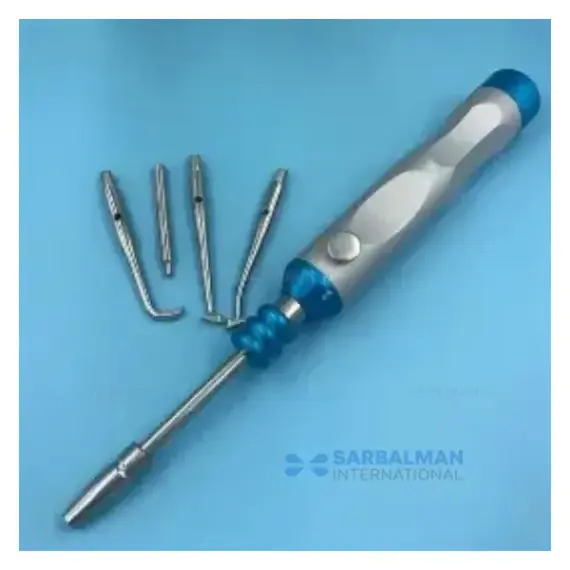Crown Remover
Free!
A crown remover that breaks cement seals quickly and conservatively. The spring-loaded handle delivers controlled impulses, while interchangeable tips engage margins and undercuts with precision. Use it to remove provisionals, retrieve single-unit crowns, and release selected bridge retainers with minimal tooth reduction. Autoclavable stainless steel construction and an ergonomic grip make it a durable, low-maintenance choice for faster, safer crown removal.
Description
A crown remover is a precision instrument designed to safely detach temporary or permanent crowns and selected bridge units without aggressive cutting. The spring-loaded handle delivers a controlled impulse to break cement seals while protecting the tooth and periodontium. Interchangeable tips (hooks, blades, and chisel-style ends) let the clinician engage margins, undercuts, or embrasures for efficient access. Made from surgical-grade, autoclavable metal, the instrument cleans easily and stands up to repeated sterilization.
Key features
-
Spring-loaded mechanism for adjustable, repeatable impact
-
Interchangeable tips for margins, undercuts, and interproximal access
-
Knurled, ergonomic handle for a secure, low-fatigue grip
-
Stainless steel construction; autoclavable per standard protocols
-
Smooth, one-hand operation with quick tip changes
Primary benefits
-
Saves chair time by releasing cement bonds without extensive sectioning
-
Reduces risk of iatrogenic damage to tooth structure and soft tissues
-
Improves predictability when retrieving provisionals for reline or reuse
-
Low consumable cost; reusable tips and durable build
Common uses and applications
-
Removal of temporary crowns prior to final cementation
-
Retrieval of permanent single-unit crowns during endodontic or repair procedures
-
Debonding selected bridge retainers to preserve abutments
-
Adjusting and reseating provisionals without distortion
How it compares
-
Versus forceps-style removers: spring-driven impulse breaks cement efficiently with less continuous pressure on the tooth.
-
Versus rotary sectioning: faster in many cases and preserves more enamel and restorative material.
-
Versus air-driven or ultrasonic devices: no external power source, low noise, and simple maintenance.
Use tips
-
Test fit tip selection on an embrasure or margin before tensioning.
-
Apply small, repeated impulses rather than a single heavy strike.
-
Protect adjacent tissues with retraction and suction; confirm fit and function after removal.




